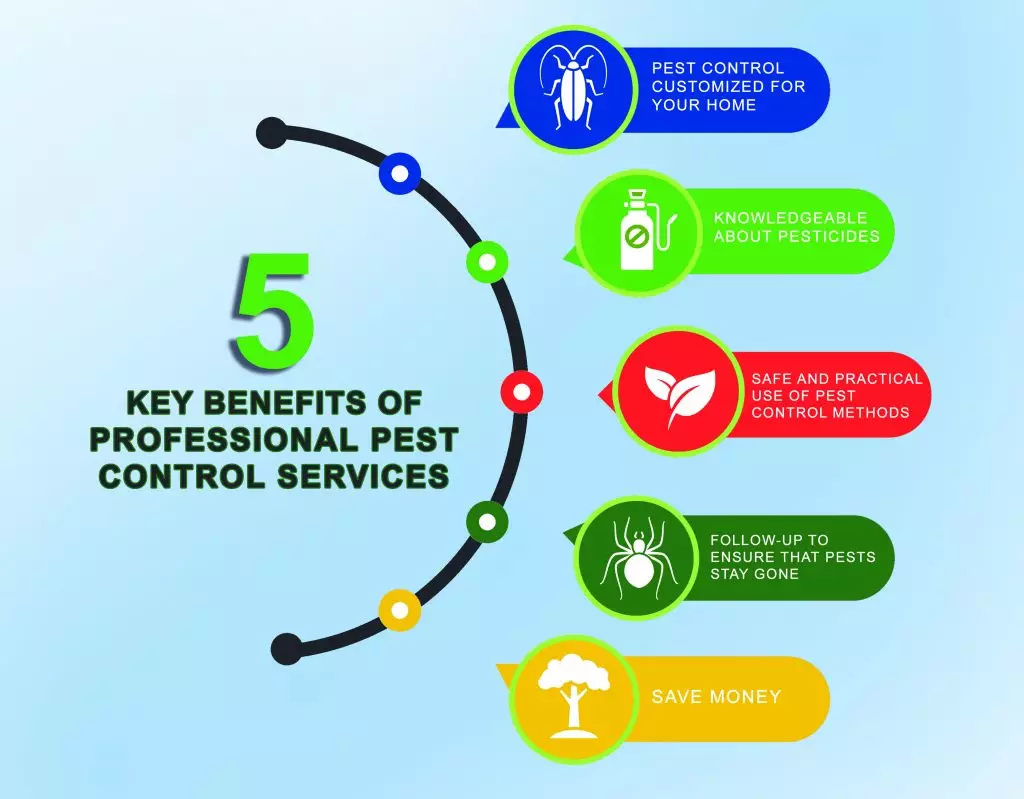Budget Friendly Pest Control Clovis: Solutions Customized to You
Budget Friendly Pest Control Clovis: Solutions Customized to You
Blog Article
Comprehending the Various Techniques to Pest Control: A Comprehensive Guide

Natural Insect Control Techniques
Utilizing environment-friendly methods such as buddy planting and organic insect control is important for effectively managing bugs in agricultural settings. Friend planting involves expanding different crops in closeness to prevent bugs, improve nutrient uptake, and boost total plant health and wellness.
Biological pest control entails introducing all-natural predators or virus to manage pest populaces. Ladybugs, as an example, feed on aphids, regulating their numbers without the need for chemical pesticides. An additional example is the usage of Bacillus thuringiensis (Bt), a bacterium that targets details insect pests while being safe to humans, pets, and advantageous pests.
These environment-friendly approaches not only lower the reliance on artificial pesticides yet also aid preserve biodiversity and dirt wellness. By incorporating all-natural pest control methods into farming practices, farmers can attain sustainable insect monitoring while reducing unfavorable influences on the environment.

Chemical Insect Control Solutions
In enhancement to all-natural parasite control methods, the usage of chemical bug control remedies plays a significant function in successfully taking care of pest populaces in agricultural environments. Chemical bug control remedies are formulated to target specific insects that may create extensive damage to crops. These services typically consist of artificial chemicals that are created to remove parasites promptly and successfully.
Among the vital advantages of chemical insect control options is their performance in controlling insect invasions on a huge scale. Farmers can apply these services utilizing different approaches such as spraying, fumigation, or seed therapy to secure their crops from hazardous insects, weeds, and diseases. Additionally, chemical parasite control options are fairly easy to apply and can give quick outcomes, assisting farmers protect their yields and decrease financial losses.
Nevertheless, it is necessary to use chemical bug control services judiciously to decrease prospective negative impacts on the environment, non-target microorganisms, and human health. Appropriate application techniques, adherence to safety and security guidelines, and normal tracking are crucial to make certain the accountable usage of chemical bug control services in farming practices.
Organic Pest Control Approaches
Organic parasite control approaches take advantage of natural predators or pathogens to handle bug populations in farming settings properly. This technique offers a eco-friendly and sustainable option to pest management, minimizing the dependence on synthetic chemicals and lessening injury to the environment. One common biological control technique is the intro of all-natural adversaries, such as ladybugs or parasitic wasps, to target particular insects. These killers prey on the parasites, helping to control their populations naturally - pest control clovis.
An additional organic control approach entails making use of virus like germs, infections, or fungis to infect and kill insects. These microbial agents can be sprayed on crops or presented right into the soil to deal with numerous parasites without harming beneficial pests or various other wildlife. In addition, making use of pheromones to disrupt the mating patterns of bugs is one more effective organic control approach. By disrupting their recreation, this method aids to reduce parasite populaces without the need for chemical intervention. Generally, biological pest control approaches offer a lasting and targeted solution to pest management in agriculture.
Integrated Bug Monitoring (IPM)
Integrated Parasite Administration (IPM) is visit their website a comprehensive approach that incorporates various pest control strategies to successfully manage and reduce pest populations in farming systems. IPM focuses on lasting prevention of bugs through a combination of biological, social, physical, and chemical control approaches. By integrating these different techniques, IPM intends to reduce reliance on chemical pesticides, lessen environmental influence, and promote sustainable parasite administration techniques.
One key element of IPM is the usage of organic controls such as natural predators, bloodsuckers, and pathogens to regulate bug populaces. This approach takes advantage of the power of nature to keep an equilibrium in between pests and their natural opponents without triggering damage to the atmosphere.
In addition, IPM entails social techniques like plant habitat, rotation, and sanitation adjustment to produce undesirable conditions for insects and disrupt their life cycles. Physical controls such as composts, traps, and barriers are also utilized to avoid insect infestations.
Physical and mechanical Insect Control Techniques
Making use of non-chemical approaches, such as physical and mechanical insect control techniques, is an important aspect of comprehensive parasite monitoring techniques, building on the structure of Integrated Bug Management's all natural technique. Mechanical insect control involves the usage of physical barriers or catches to stop insects from accessing and harming crops or frameworks. This technique can consist of methods like installing displays on windows, making use of row covers in agriculture, or employing sticky catches to capture insects.
Physical parasite control approaches, on the other hand, emphasis on directly removing pests via physical means. For example, utilizing warmth treatments to get rid of bed bugs or vacuuming up parasites like ants or crawlers can be effective methods to take care of invasions without using chemicals. By integrating these physical and mechanical pest control methods right into an Integrated Pest Administration strategy, individuals and experts can minimize dependence on pesticides while still successfully minimizing and managing pest populations damages.
Final Thought

In addition to all-natural insect control techniques, the usage of chemical parasite control remedies plays a substantial role in effectively taking care of pest populations in farming atmospheres.One of the vital benefits of this chemical pest control options is their effectiveness in regulating parasite problems on a large range.Integrated Pest Management (IPM) is a comprehensive strategy that combines different parasite control approaches to effectively manage and minimize pest populations in farming systems.Making use of non-chemical approaches, such as mechanical and physical bug control techniques, is an essential facet of comprehensive bug monitoring techniques, developing upon the structure of Integrated Pest Administration's all natural approach. By integrating these physical and this link mechanical parasite control techniques into an Integrated Bug Monitoring plan, individuals and experts can reduce reliance on pesticides while still successfully reducing and handling pest populaces damages.
Report this page